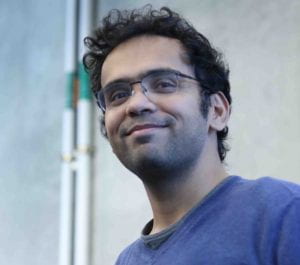Interactive Imitation Learning: Planning Alongside Humans
Date: 3/3/22
Speaker: Sanjiban Choudhury 
Location: 122 Gates Hall and Zoom
Time: 2:40 p.m.-3:30 p.m.
Abstract:
Advances in machine learning have fueled progress towards deploying real-world robots from assembly lines to self-driving. However, if robots are to truly work alongside humans in the wild, they need to solve fundamental challenges that go beyond collecting large-scale datasets. Robots must continually improve and learn online to adapt to individual human preferences. How do we design robots that both understand and learn from natural human interactions?
In this talk, I will dive into two core challenges. First, I will discuss learning from natural human interactions where we look at the recurring problem of feedback-driven covariate shift. We will tackle this problem from a unified framework of distribution matching. Second, I will discuss learning to predict human intent where we look at the chicken-or-egg problem of planning with learned forecasts. I will present a graph neural network approach that tractably reasons over latent intents of multiple actors in the scene. Finally, we will demonstrate how these methods come together to result in a self-driving product deployed at scale.
Bio: Sanjiban Choudhury is a Research Scientist at Aurora Innovation and soon-to-be Assistant Professor at Cornell University. His research goal is to enable robots to work seamlessly alongside human partners in the wild. To this end, his work focuses on imitation learning, decision making and human-robot interaction. He obtained his Ph.D. in Robotics from Carnegie Mellon University and was a Postdoctoral fellow at the University of Washington. His research has received best paper awards at ICAPS 2019, finalist for IJRR 2018, and AHS 2014, and winner of the 2018 Howard Hughes award. He is a Siebel Scholar, class of 2013.
